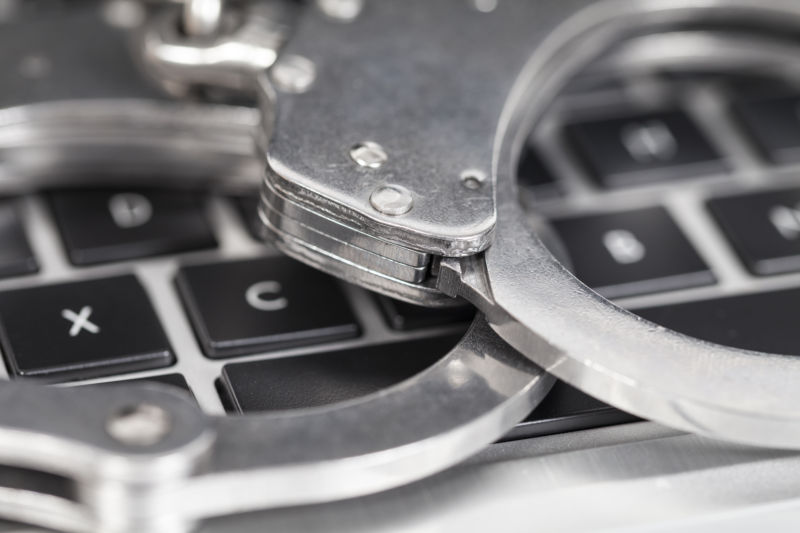
ullstein bild / Getty Images News
Federal authorities have arrested a 23-year-old Taiwanese national and charged him with running an online market that sold $100 million worth of illicit narcotics, including fentanyl, cocaine, methamphetamine, heroin, LSD, and ketamine.
The authorities said that for almost four years, Rui-Siang Lin operated and owned the Incognito Market, an online marketplace on the dark web that users worldwide visited to buy and sell illegal narcotics. The marketplace facilitated transactions with many of the same features provided by legitimate e-commerce sites, including buyer and user registration, branding, advertising, and customer service. When registered buyers visited the site using the Tor browser, they were presented with the following graphic:
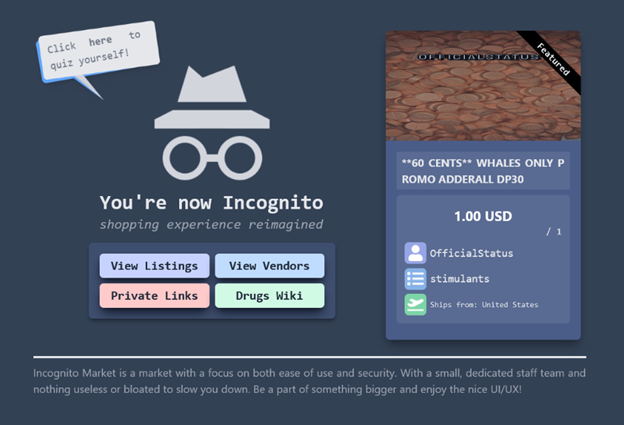
Justice Department
The site allowed buyers to search through thousands of listings for narcotics of their choice. It opened in October 2020 and, as reported by KrebsOnSecurity, closed last March when its operators extorted both buyers and sellers of fees ranging from $100 to $2,000 in exchange for not revealing text messages and transaction records showing their participation in the marketplace. In the 41 months that Incognito Market was open, it facilitated the sale of more than $100 million of narcotics. By June 2023, the site was generating sales of $5 million per month.
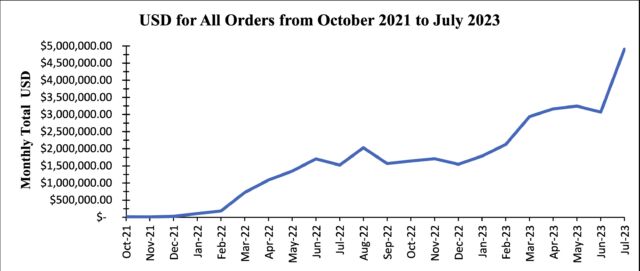
Justice Department
Using the online handles that included Pharoah with multiple spellings, “Lin had ultimate control over more than one thousand vendors (those who sell narcotics on Incognito Market), more than 200,000 customers (those who buy narcotics on Incognito Market), and at least one other employee who assisted Lin in the management of the site,” prosecutors alleged in an indictment unsealed Monday.
To facilitate the marketplace, the site established its own bank that allowed users to deposit cryptocurrency into their own accounts.
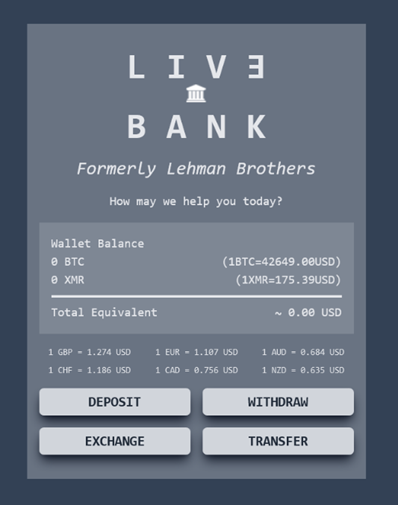
The Incognito Marketplace bank
Justice Department
Once a transaction took place, funds were transferred from a buyer’s account into the seller’s, minus a 5 percent fee collected by Incognito Market. The arrangement allowed buyers and sellers to remain anonymous to one another. The site also made money by charging sellers an initial admission fee.
Throughout its history, Incognito generated sales of $83.6 million, which earned Lin and his associates roughly $4.2 million from commission and admission fees. Lin, prosecutors said, collected millions in profits.
“For nearly four years, Rui-Siang Lin allegedly operated ‘Incognito Market,’ one of the largest online platforms for narcotics sales, conducting $100 million in illicit narcotics transactions and reaped millions of dollars in personal profits,” James Smith, the assistant director in charge of the FBI New York field office, said in a release. “Under the promise of anonymity, Lin’s alleged operation offered the purchase of lethal drugs and fraudulent prescription medication on a global scale.”
Substances available included narcotics and misbranded prescription medication, including heroin, cocaine, LSD, MDMA, oxycodone, methamphetamines, ketamine, and alprazolam. In the indictment, federal prosecutors included the following screenshot as an example of listings available through Incognito Market:
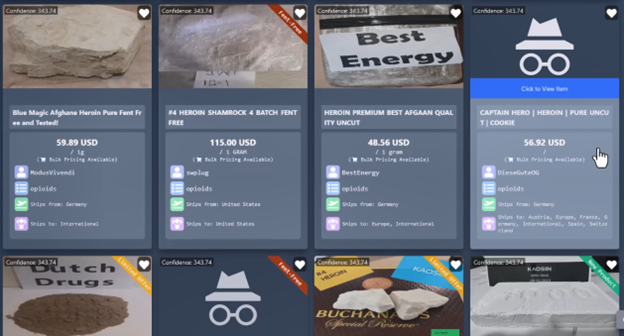
Justice Department
“Listings included offerings of prescription medication that was advertised as being authentic but was not,” federal officials said. “For example, in November 2023, an undercover law enforcement agent received several tablets that purported to be oxycodone, which were purchased on Incognito Market. Testing on those tablets revealed that they were not authentic oxycodone at all and were, in fact, fentanyl pills.”
Lin was arrested at John F. Kennedy Airport on Saturday and was scheduled to appear in federal court in Manhattan on Monday afternoon. It is not known if Lin entered a plea.
If convicted, Lin faces a mandatory minimum penalty of life in prison for engaging in a continuing criminal enterprise. He could also receive a maximum penalty of life in prison for narcotics conspiracy, a maximum penalty of 20 years in prison for money laundering, and a maximum penalty of five years in prison for conspiracy to sell adulterated and misbranded medication.
